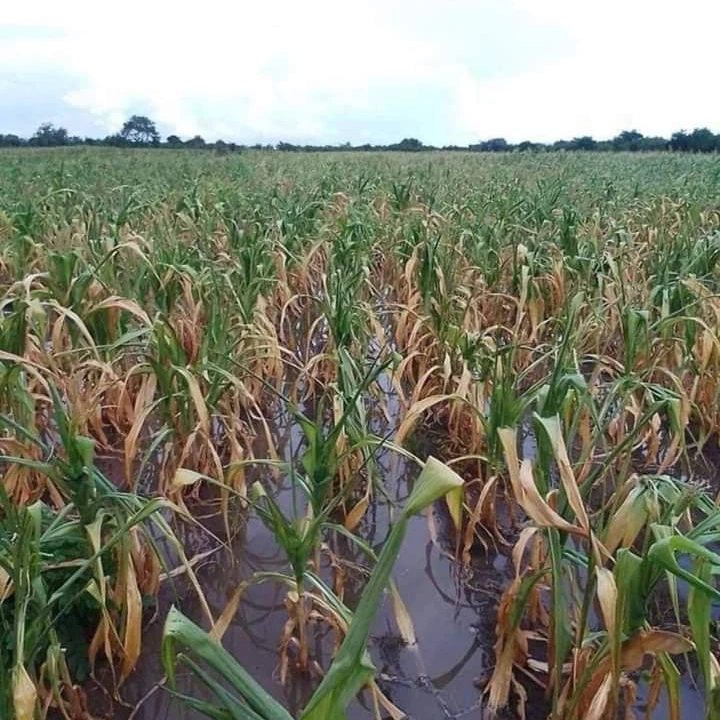UN to raise US$429m for drought relief in Zim
The United Nations has launched a global appeal to raise US$429 million for the provision of humanitarian assistance to more than 3,1 million people in Zimbabwe who urgently require help due to the impact of the El Nino induced drought.
UN resident and humanitarian co-ordinator Edward Matthew Kallon said in a statement that millions of both cattle and people were at risk as a result of the impact of the drought and required protection and livelihood support to recover and rebuild resilience.
The humanitarian assistance, the UN said, would complement ongoing Government efforts. President Mnangagwa earlier this year declared the drought situation a State of Disaster, indicating US$2 billion was required for drought relief.
The President declared no one would die of hunger as a result of the drought as the Government was working on measures to assist all vulnerable groups in urban and rural areas.
Finance, Economic Development and Investment Promotion Minister Professor Mthuli Ncube also recently said the Treasury would reallocate resources to address drought needs.
“During the El-Niño-induced drought in Zimbabwe, a total population of 7,6 million people urgently requires lifesaving and life-sustaining humanitarian assistance and protection
support, as well as livelihood support, so that they may recover their losses, rebuild resilience, and access basic services.
“Since December 2023, subsequent long dry spells, and high temperatures, coupled with poor rainfall performance, pushed the value of crop and livestock production to a very low,” said Kallon.
He noted that official estimates for the 2024 crop season were that about 700 000 metric tonnes of maize, out of an annual requirement of 2,2 million tonnes, would be realised from this year’s harvest.
Kallon also said more than 1,4 million cattle risk suffering deteriorating conditions or starving, amid lack of food and pasture.
“The impacts of El Niño have negatively affected local crop production, with estimates of a 52 percent shortfall,” he said.
According to the Crop, Livestock and Fisheries Assessment Report (CLAFA 1), the Ministry of Lands, Agriculture Fisheries, Water and Rural Development found that crop production was negatively affected: 40 percent of maize crops were classified as ‘poor’ and 60 percent as write off.
“As cattle herds converge in search of forage and water, livestock diseases have increased. The livestock sector risks being seriously affected, in the coming winter months between June to October, duet
very poor pasture quality and lack of drinking water.
“To respond to the scenario, this Flash Appeal requires US$429,3 million for humanitarian partners to target close to 3,1 million people. The appeal aims to mobilise humanitarian action in support of the Government-led response and is directly complementing the Government’s relief efforts.
“We have ensured that this appeal is prioritised and principled, and we are confident that the activities planned are the most urgently needed to deliver immediate relief to the people who need it the most.
“In implementing this appeal, the UN and humanitarian partners are committed to ensuring that the humanitarian principles of impartiality, neutrality, independence, and humanity are fully respected.
“I am conscious that humanitarian assistance is not a long-term solution to the recurrent climatic shocks that continue to increase in frequency and intensity in Zimbabwe and across the region.
“With the global climate crisis impact, Zimbabwe is usually not spared, intensive efforts are required to ensure that people across the country can withstand growing climatic shocks, as well as to tackle inequality and poverty, as highlighted in the country’s National Resilience Strategy,” Kallon said.
The UN said together with its partners they were fully committed to supporting the Government to build resilience and implement climate-resilient development.
“However, while longer-term efforts to address these extremely complex challenges are vital, we are faced today with an urgent need to act swiftly to save the lives and livelihoods of those whose crops and livestock have been upended by the El Nino drought.
“I therefore call on the international community to show solidarity with the people of Zimbabwe at this extremely challenging time and to stand with us as we step up our response to this devastating event,” Kallon said.-ebusinessweekly











